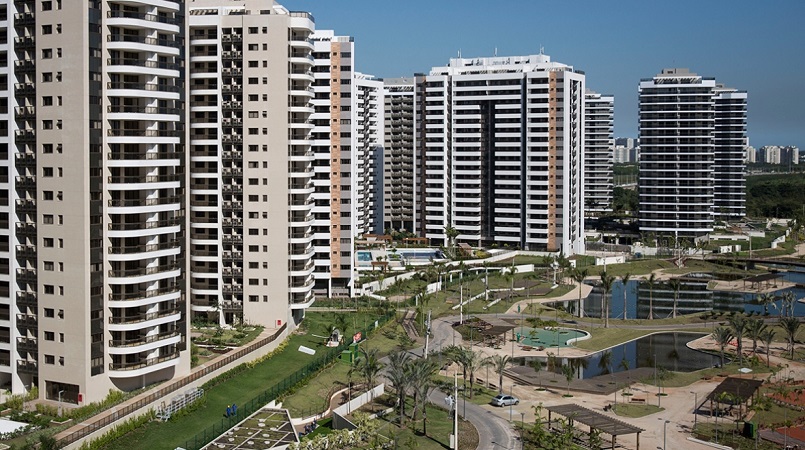
The troubled Rio de Janeiro Olympic Games have arrived at their first major crisis, two weeks before the opening ceremony, with the Australian Olympic Committee saying its athletes could not move into the Olympic Village because it was uninhabitable.
Chef de mission Kitty Chiller said the problems included "blocked toilets, leaking pipes and exposed wiring", with the first Australian athletes to arrive, on July 21, living in hotels due to the state of the village.
Chiller said some village apartments had water running down the walls and "a strong smell of gas," while stairwells were unlit and floors were in need of a massive clean.
New Zealand's Olympic Committee encountered similar problems upon arrival in Rio a week ago. They themselves had to turn handymen to fix several issues, including plumbing.
"There was more work than we anticipated," chef de mission Rob Waddell said.
"We are shifting into buildings where they are still working through some of the minor things like the plumbing, the shower curtains and taps. Given the scale of the size of the team, there is quite a bit of detail to work through and make sure everything is fixed and ready."
The first Australian athletes, boxers and canoeists, were scheduled to move into the village on Sunday.
"From what we've seen," an AOC spokesman said, "you wouldn't put people in there yet."
Chiller, who would reassess the situation later on Sunday, said she had raised concerns on a daily basis with the organisers and the International Olympic Committee, and was "pushing hard for a solution".
Extra maintenance staff and more than 1000 cleaners had been engaged to fix the problems and clean the village, Chiller said, but the faults, particularly the plumbing issues, had not been resolved.
Such issues are not uncommon in Brazil, where narrow pipes and poor plumbing mean residents throw toilet paper in bins rather than flush it away.
Rio 2016 organisers did not respond to requests for comment but one official told Reuters they were aware of problems and were working to resolve them.
"There are lights, beds, air conditioning, but we still lack a few details," the source said on condition of anonymity.
"There really are last-minute details to finish but it will be done this week."
Chiller said Great Britain has also encountered problems in the village, but Team GB's communications director Scott Field downplayed those.
An advance team from the UK had been in Rio for days but found only minor problems with plumbing and electrics.
"We are confident that our accommodation is ready to receive athletes and will be to the highest standards within the Village," Field said.
"Whilst we have encountered some maintenance difficulties this is not uncommon with new build structures of this type and we have been working hard to overcome them."
Australia's criticism is just the latest in a long list of critiques of Rio's preparations: AOC boss John Coates once called Rio's preparations the "worst ever", while Chiller has been critical of security, especially following the recent gunpoint robbery of Australian Paralympian Liesl Tesch.
Rio de Janeiro's mayor Eduardo Paes fired back on Monday morning (NZ Time), saying the city's athletes' village was nicer than Sydney's was in 2000.
In a nod to the ongoing spat with the Australians, he added: "I almost feel like putting a kangaroo in front of their building to make them feel at home."
The unfinished state of the athletes village confirms some of the worst fears held about Rio's lack of preparedness for the Games.
All Olympic cities end up in a last-minute flurry, but from accounts, Rio has left too much to too late.
This builds on an impression formed by visitors to the World Cup of soccer in Brazil two years ago, that infrastructure would prove to be a big and perhaps insurmountable issue for the Olympic Games.
The timing of this latest drama is unfortunate, to say the least. All eyes were turning to Rio on Sunday as the IOC convened to consider throwing Russia out of the Games - eventually deciding not to issue a blanket ban on Russian athletes, despite a damning report on wholesale and state-sponsored doping up to and including the 2014 Sochi Winter Olympics.
In a small off-set, the AOC generally is satisfied with what it has seen so far of the level of security at the athletes' village and in Rio generally.
